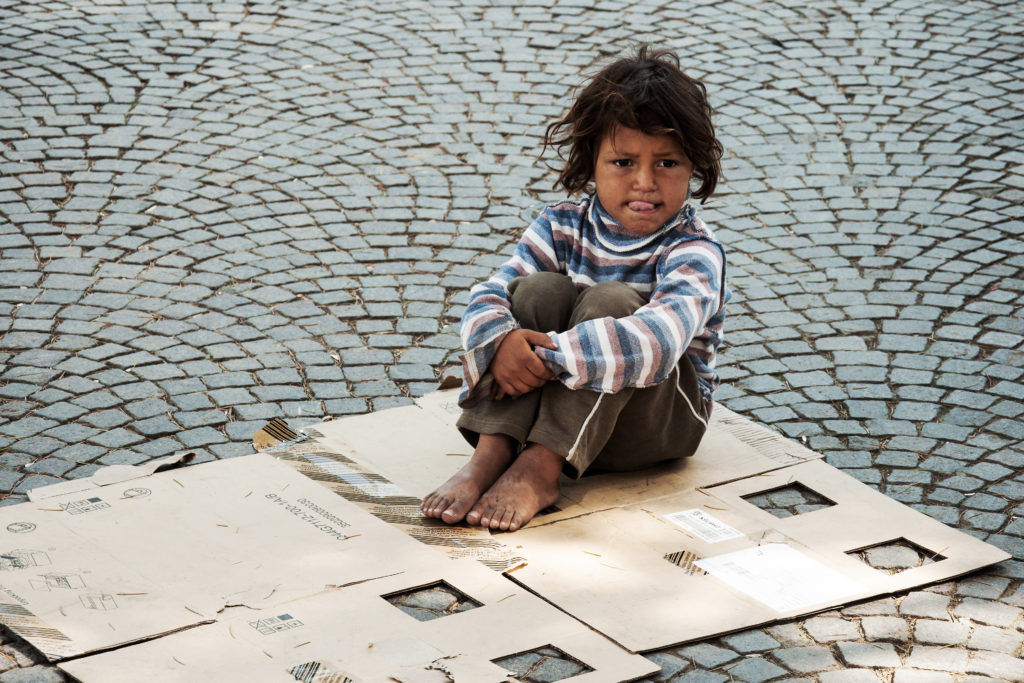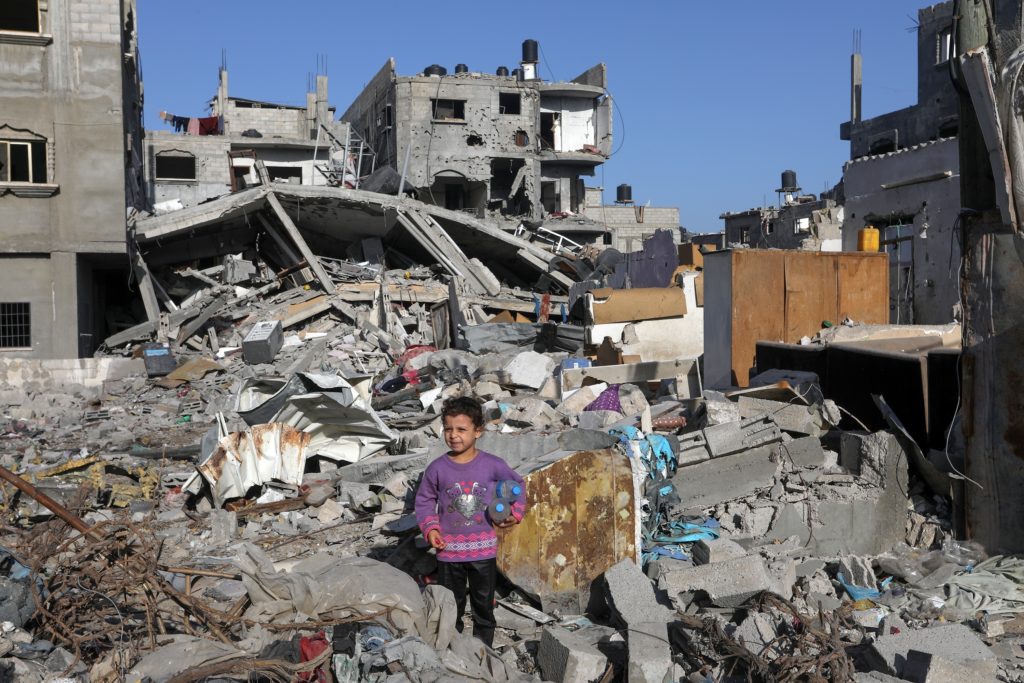In 2024, children’s rights have been under severe threat, with millions denied access to healthcare, education, and protection. Among various global crises, the most severe include escalating conflicts in Sudan, the Sahel, Palestine, and Lebanon, which have resulted in widespread child fatalities, displacement, and deep psychological trauma.
Humanitarian catastrophes: Sudan’s civil war, Sahel’s malnutrition, and Yemen’s ongoing famine
The year 2024 has deepened Africa’s crises, with conflicts and economic instability worsening already dire conditions. In Sudan, the ongoing civil war has escalated to a humanitarian catastrophe, displacing millions and leaving children particularly at risk. UNICEF reports at least 190 child deaths since the conflict began in April 2023, though this likely underestimates the true toll. Moreover, attacks on humanitarian workers, looted supplies, and destroyed facilities have further crippled aid efforts (UNICEF, 2023).
Meanwhile, in the Sahel, children continue to suffer from extreme malnutrition, lack of education, and escalating violence due to ongoing conflicts, particularly in Mali, Burkina Faso, and Niger. In Mali, clashes between government forces and armed groups have led to widespread displacement, with thousands of children forced to flee their homes. In Burkina Faso, the rapid expansion of insurgent violence from militant groups has led to the closure of nearly 7,800 schools, leaving over 1.4 million children out of education.
Similarly, Yemen continues to suffer one of the world’s worst humanitarian crises, driven by prolonged conflict and a Saudi-led blockade that has exacerbated famine and disease. Over 600,000 children under five are acutely malnourished, with 120,000 suffering from severe malnutrition. Despite some eased restrictions in 2023, limited humanitarian aid and the collapse of basic services continue to leave millions, especially children, in desperate need.
Children’s rights at risk across Europe: homelessness, family separation, and the EU Migration Pact

Across Europe, children experience a range of crises that highlight systemic social and economic challenges. From Sweden to France, vulnerable groups, particularly refugees and marginalized youth, struggle with issues like poverty, social exclusion, and inadequate protection. As a result, Swedish social services have come under scrutiny for separating Syrian refugee children from their families, raising questions about the balance between child protection and cultural sensitivities.
Furthermore, the EU Migration and Asylum Pact, adopted in May 2024, has raised significant concerns about its impact on children’s rights. The Pact permits the detention of children at borders for screening, violating international child protection principles and depriving them of essential services like education and healthcare. Unaccompanied minors are confronted with heightened risks due to inadequate family reunification provisions, leaving them isolated and vulnerable to exploitation.
Critics argue that the Pact fails to uphold the best interests of children, calling for child-friendly alternatives and stronger safeguards. These concerns are further underscored by the escalating challenges endured by children in the UK and France, where systemic issues such as homelessness, social exclusion, and incarceration compound the vulnerabilities of migrant and disadvantaged children. This highlights the urgent need for reforms and comprehensive protections to safeguard children’s rights across Europe.
The widespread violation of minors’ rights across North America: from border camps to opioid epidemics
The violation of children’s rights in the U.S. has become a growing concern, particularly in the context of child migrants detained at the US-Mexico border. An increasing number of families, including many children, are risking dangerous journeys in search of safety, only to undergo inhumane conditions in overcrowded border camps. These camps, often located in remote desert areas, lack basic necessities such as food, water, shelter, and medical care, leading to severe physical and mental health consequences for the children.
The oppression of minors extends beyond the United States to other regions in North America, such as Canada, where Indigenous children living on reserves face significant threats due to climate change. These children are particularly vulnerable, as the lands they occupy are already disadvantaged due to colonial history. The impacts of the climate crisis—ranging from wildfires and water contamination to the loss of traditional food sources—compound existing health and social inequities.
Another troubling example is the alarming rise in opioid misuse among Canadian youth. Since the 1980s, Canada has become the second-largest consumer of prescription opioids globally, with many teenagers engaging in illicit drug practices. The opioid epidemic worsened with the introduction of synthetic opioids, particularly fentanyl, which contributed significantly to the surge in overdose deaths. In 2023, British Columbia recorded a historic 1,455 drug-related deaths, surpassing all previous totals for the same period.
Children as collateral damage: the consequences of Israel’s escalating violence in Palestine and Lebanon

The most devastating and blatant violation of children’s right to life is unfolding in the Occupied Palestinian Territories. The region has become the deadliest place in the world for children, with at least 11,300 child deaths reported in less than a year. Around 30% of these victims were under five years old, including 710 babies under 12 months. The ongoing violence, scarcity of food, and lack of access to life-saving resources leave children not only at risk of death but also enduring psychological harm (Save the Children, 2024).
Israel has also made efforts to reduce the operations of the United Nations Relief and Works Agency for Palestine Refugees (UNRWA) by working to limit its funding, pressuring donor countries to withdraw financial support, and lobbying international organizations to exclude it from UN platforms. These actions could reduce vital humanitarian services for Palestinian refugees, including education, health care, food, and shelter, worsening the already dire living conditions in refugee camps, particularly in Gaza and the West Bank (Krever, 2024).
“Gaza is the real-world embodiment of hell on earth for its one million children. And it’s getting worse, day-by-day, as we see the horrific impact of the daily airstrikes and military operations on Palestinian children.”
– UNICEF Spokesperson James Elder, October 2024
Furthermore, the ongoing violence in the West Bank has had a severe impact on children. In a span of one year, 143 Palestinian children have been killed, marking a staggering 250% increase in deaths compared to the year 2022/23. In addition, over 440 children have been injured by live ammunition, leaving many with permanent physical and emotional scars. Military operations in Jenin, Tulkarm, and Nablus have escalated, with families living in daily fear amid unprecedented violence (UNICEF, 2024).
The violence extends beyond Palestine, as Israel’s strikes on Lebanon have caused significant harm to children. In recent months, at least 231 children in Lebanon have been killed, and more than 1,300 injured, according to the Lebanese Health Ministry. The conflict, primarily between Israel and Hezbollah, has resulted in devastating outcomes for innocent civilians, with an average of 3.5 children killed and 9.5 injured daily (Cheeseman & Haidamous, 2024).
Urgent action for children’s rights: a call for global support
In 2024, millions of children have been affected by preventable conflicts and man-made disasters, further exacerbated by governmental failures. To prevent further loss of life, the international community must urgently call for an immediate ceasefire in regions such as Sudan, Palestine, Lebanon, and the Sahel, and ensure the unimpeded flow of humanitarian aid, with particular emphasis on urging Israel and the U.S. to take decisive action.
Over the past 14 months of conflict, the U.S. has vetoed five resolutions at the United Nations Security Council that called for an end to the violence in Gaza. Most recently, on November 20, 2024, the U.S. cast the sole vote against a resolution urging an immediate and unconditional ceasefire (Fassihi et al., 2024). These repeated vetoes are detrimental to resolving the humanitarian crisis in Gaza and to upholding international law, which continues to be flagrantly violated (UN, 2024).

In 2025, we will continue with our mission to ensure that every child has access to safety and the opportunity to grow up in a world free from fear and violence. We invite you to join us in this critical cause by sponsoring a child, making a donation, or volunteering your time. By joining forces, we can build a world where every child’s rights are valued and preserved!
From all of us at Humanium, may your New Year be filled with joy, health, safety, and the realization of your dreams!
Written by Lidija Misic
Bibliography:
Cheeseman Abbie & Haidamous Suzan (2024), Israel’s war on Hezbollah takes terrible toll on Lebanon’s children. Retrieved from The Washington Post at https://www.washingtonpost.com/world/2024/11/19/children-killed-lebanon-israel-hezbollah/, accessed on November 24, 2024.
Farnaz Fassihi et al. (2024), U.S. Casts Sole Vote Against Gaza Cease-Fire Resolution. Retrieved from The New York Times at https://www.nytimes.com/2024/11/20/world/middleeast/gaza-ceasefire-us-veto.html, accessed on November 24, 2024.
Krever Mike (2024), Israel has long wanted to dismantle the UN’s Palestinian refugee agency. The consequences could be disastrous for all. Retrieved from CNN at https://edition.cnn.com/2024/11/03/middleeast/israel-unwra-knesset-bill-analysis-intl/index.html, accessed on November 24, 2024.
Save the Children (2024), Gaza: at least 3,100 children aged under five killed with others at risk as famine looms. Retrieved from Save the Children at https://www.savethechildren.net/news/gaza-least-3100-children-aged-under-five-killed-others-risk-famine-looms, accessed on November 24, 2024.
UN (2024), Middle East live updates for 20 November: US vetoes Security Council resolution on Gaza. Retrieved from UN at https://news.un.org/en/story/2024/11/1157201, accessed on November 24, 2024.
UNICEF (2023), Geneva Palais Briefing Note: Horrifying numbers of children killed & injured in Sudan. Retrieved from UNICEF at https://www.unicef.org/press-releases/geneva-palais-briefing-note-horrifying-numbers-children-killed-injured-sudan, accessed on November 24, 2024.
UNICEF (2024), Gaza’s children: “Trapped in a cycle of pain”. Retrieved from UNICEF at https://www.unicef.org/press-releases/gazas-children-trapped-cycle-pain, accessed on November 24, 2024.


